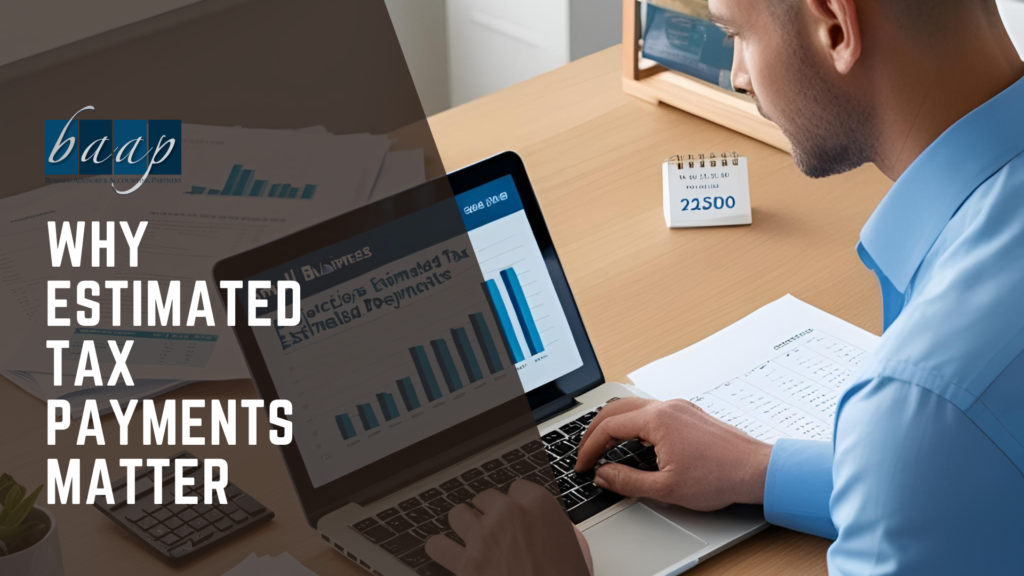
For many small business owners, taxes are a source of stress, confusion, and missed opportunities. But with the right business advisory partner, tax planning can shift from reactive and overwhelming to proactive and empowering. By choosing the right entity structure, making estimated payments, and understanding potential audit risks, business owners can take control of their financial management and unlock greater tax efficiency.
This blog explores how working with a knowledgeable advisor helps businesses stay ahead—maximizing savings, reducing surprises, and creating a confident path forward.

As a general rule of thumb, if you expect to owe more than $1,000 in taxes for the year, you should either adjust your withholdings or make quarterly estimated payments. This is especially critical for LLCs, S-Corps, and other small businesses where income often isn’t taxed at the source.
💡 CPA Tip: Mid-year projections are essential. By checking in around the six-month mark, you can assess profits and determine what tax exposure looks like—giving you time to prepare, rather than panic.

Too often, small business owners hand off their documents to a tax preparer in March and hope for the best. A proactive approach means meeting with your CPA throughout the year to:
This shift not only improves financial management, but also eliminates last-minute scrambling and unexpected tax bills.
Choosing between an LLC and an S-Corp has major tax implications. While an LLC offers flexibility and simplicity, electing S-Corp taxation can reduce exposure to self-employment taxes—as long as the business is profitable and the owner takes a reasonable salary.
📌 S-Corp Benefits:
A smart business advisory strategy may involve starting as an LLC and converting to an S-Corp when the time is right.

Mention “IRS” and most people freeze. But audit risks shouldn’t cause fear—they should inform strategy. Sole proprietors filing Schedule C returns face higher audit scrutiny due to looser recordkeeping requirements. In contrast, S-Corps and LLCs with solid documentation and accounting practices are generally viewed as more compliant.
💡 Pro Tip: Keep receipts, document everything, and work with an advisor who ensures your tax position is defendable.
Life and business evolve. That’s why flexibility is a key part of tax efficiency. Whether you’re having a better-than-expected year or facing unexpected challenges, it’s never too late to pivot your strategy.
A skilled advisor can help:
The key? Stay engaged. Taxes shouldn’t be something you “set and forget.”
Tax efficiency doesn’t happen by accident—it’s the result of thoughtful planning, regular reviews, and expert guidance. The best tax advisors don’t just file returns; they translate tax code into plain English, help you understand your options, and align your tax strategy with your broader business vision.
👉 Whether you’re navigating LLC vs. S-Corp status, managing self-employment taxes, or trying to minimize audit risks, partner with a business advisory team that brings clarity, strategy, and a proactive approach to your small business journey.